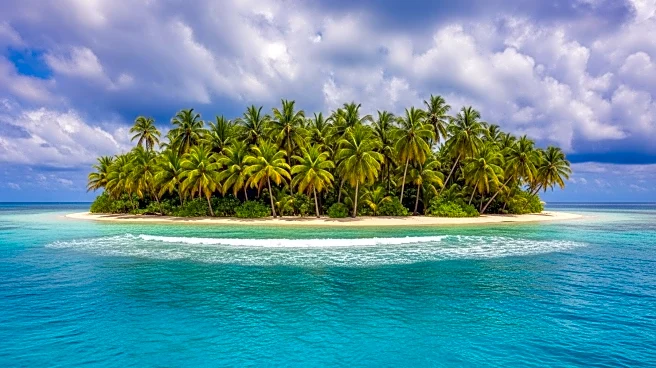What is the story about?
What's Happening?
On the Philippine island of Pugad, residents are grappling with severe flooding caused by rising sea levels and land subsidence. The island, located in Manila Bay, is experiencing high tides that flood streets at least three times a week, dictating the daily rhythm of life. Homes are being raised on stilts, and class schedules are adjusted based on tide charts to prevent flood-borne diseases. The island's subsidence, exacerbated by groundwater overextraction and global warming, is causing parts of Bulacan province to sink at a rate of nearly 11 centimeters per year. Efforts to mitigate the flooding include raising roads every three years, but inconsistent leadership has hindered long-term solutions.
Why It's Important?
The situation on Pugad Island highlights the urgent need for climate justice and effective flood mitigation strategies. The island's residents, who contribute minimally to climate change, are disproportionately affected by its adverse effects. The rising sea levels across the Philippines, occurring three times faster than the global average, threaten to submerge coastal areas without large-scale intervention. The lack of a comprehensive national strategy to address these issues underscores the need for international cooperation to reduce greenhouse gas emissions and implement climate funds to support affected regions.
What's Next?
A government study on flood mitigation strategies is expected by 2028, but immediate action is needed to prevent further damage. The UN climate fund established in 2023 remains unimplemented, leaving vulnerable communities like Pugad without necessary support. Residents continue to elevate their homes annually, incurring significant costs, while urging global polluters to take responsibility for their contributions to climate change. The potential for reversing land subsidence exists with effective policies, but addressing sea level rise requires concerted global efforts.
Beyond the Headlines
The plight of Pugad Island residents raises ethical questions about climate justice and the responsibility of industrialized nations in addressing climate change. The cultural impact on communities forced to adapt or relocate due to environmental changes is profound, affecting livelihoods and heritage. Long-term shifts in global climate policy could be triggered by increased awareness and advocacy from affected regions, emphasizing the need for equitable solutions.















